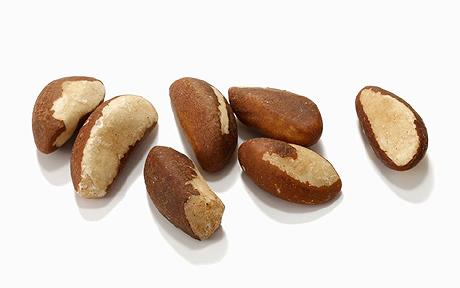Business & Finance Club - Nutrition : Nutting season is almost upon us, and with it the race to beat squirrels to the bounty on our forest floors. Now there is a new medical impetus for giving Tufty a run for his money. Earlier this year, scientists discovered that those who eat nuts regularly have significantly lower cholesterol than those who don’t.
Researchers from Loma Linda University in California found that diets supplemented daily with a handful of nuts contained seven per cent less “bad” cholesterol. Lead researcher Dr Joan Sabaté said: “Increasing the consumption of nuts as part of an otherwise prudent diet can be expected to favourably affect cholesterol levels.”
However, Ellen Mason, a cardiac nurse at the British Heart Foundation, urges a degree of moderation. “Adding nuts back into our diet in place of saturated fats could help to improve cholesterol levels for many people, but go for unsalted nuts in small amounts.”
Despite being high in calories – two handfuls of walnuts contain 650 calories – nuts are a powerhouse of nutrients, notably vitamin E, folic acid, copper, magnesium and the amino acid arginine, each of which may play a role in preventing heart disease. Nuts also contain plant sterols, a compound regularly added to margarines to reduce cholesterol absorption.
Each variety confers its own unique benefit. So here is a guide to which nuts you should go for according to your medical needs.
High cholesterol? Eat almonds, macadamias and pecans
*Cholesterol, a waxy substance produced by the liver when breaking down fatty foods, is a key factor in heart attacks and strokes. There are two kinds: high-density lipoprotein (HDL) – or “good” cholesterol – and “bad”, low-density lipoprotein (LDL). Too much LDL in the body can lead to hardening in the arteries. While the Loma Linda study found that all nuts helped to lower LDL levels, the benefits were keenest in almonds, macadamias and pecans.
Almonds have a particularly positive effect bad cholesterol. A 2002 Canadian study found that patients eating 74g a day lowered their LDL levels by 9.4 per cent. An Australian study in 2003 found that 90g of macademia nuts a day cut it by 5.3 per cent. And research published in the Journal of Nutrition in 2001 showed a pecan-rich diet lowered LDL by 16.5 per cent, without any associated weight gain.
Signs of ageing? Eat hazelnuts
*Hazelnuts are great for skin cell renewal and development, says Kumud Gandhi, food scientist and founder of the Cooking Academy, whose recipes centre on ingredients and their beneficial properties (thecookingacademy.co.uk). “Hazelnuts are also full of vitamin E and essential fatty acids, which keep cells plump under the skin, supporting it and preventing wrinkles,” she says. She recommends nuts as a healthy alternative to biscuits or chocolate. Eight hazelnuts four or five times a week is plenty.
Infertility? Eat brazil nuts
*“Sperm production needs some quite specific nutrients, many of which are depleted in modern diets, including selenium,” says Zita West, a midwife and fertility consultant. She recommends selenium-rich brazil nuts. Two or three a day will suffice.
Type 2 Diabetes? Eat peanuts
*Plenty of evidence suggests that eating peanuts can protect against diabetes and other metabolic syndromes, notably gallstones. A review of studies produced by the University of Toronto and published in 2008 in the Journal of Nutrition says the effect may be due to beneficial changes in the numbers of fat cells (lipids) in the blood, plus less cell damage and inflammation. Kumud suggests 30g – about a dessert spoon – a day.
Memory loss? Eat walnuts and almonds
*Eating 45g of walnuts a day – about 15 large halves – could help age-related memory impairment. Scientists at Tufts University in Boston noted that high levels in the nut of alpha-linolenic acid (ALA), as well as other polyphenols which act as antioxidants, may block the signals that can cause damage in the pathways of the brain.
Lung cancer? Eat pistachios
*Gamma-tocopherol, a form of vitamin E found in pistachio nuts, may help to decrease the risk of lung cancer. Research from the Department of Epidemiology at the University of Texas suggests that eating pistachios every day could be beneficial for this and other cancers. Participants in a six-week trial who were given 56g of pistachio nuts every day – around 50 kernels – were found to have higher levels of gamma-tocopherol.
Weight control? Eat almonds
*Eating almonds can actually help you lose weight, according to researchers at Purdue University in Lafayette, Indiana. For a study conducted in 2007, subjects ate 56g of almonds – about 24 shelled pieces – a day for 10 weeks, yet gained no weight; researchers believe that this was due to the nut’s satiating effect. Subjects in the trial compensated naturally for the almonds by eating less food of other types.










